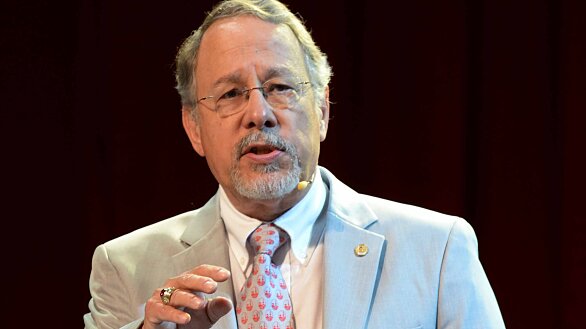Executives of men’s organizations from African Methodist Churches meet with leaders of United Methodist Men
NASHVILLE––Amid protests related to the killing of Floyd George, leaders of United Methodist Men participated in a June 9 Zoom meeting with leaders of the African Methodist Episcopal (AME) Church, the Christian Methodist Episcopal (CME) Church,and the African Methodist Church, Zion.
“God’s timing is remarkable,” said Gil Hanke, top staff executive of the General Commission on United Methodist Men, following the historic gathering.
"We also welcomed a leader of men of the Nazarene Church, who participated for the first time.”
Sharing dreams
“We listened; we laughed; we shared our hopes and dreams of what we could do together,” said Hanke. “We praised everyone for their efforts to reduce racism, and we envisioned a future filled with hope.”
Hanke said the meeting established “new relationships that combine to create an unlimited potential.”
“The group plans to meet again and will issue invitation to leaders of other denominations who share Wesley’s passion for discipleship,” said Hanke.
The beginnings of the conversation
The staff and volunteers of the General Commission on United Methodist Men have a long tenure with what is now called the Denominational Men’s Ministry Leadership Table, a group of some 20 leaders of men’s ministries that meet annually.
George Brown, leader of the “Son’s of Allen” of the AME Church joined the interdenominational group in 2017.
The CME Church became involved when Hank Dozier, former president of the Southeast Jurisdiction United Methodist Men established a relationship with Dr. Leo Pinkett, a leader of the CME Church.
Dozier invited Pinkett to serve as a featured speaker at a Southeastern Jurisdiction United Methodist Men meeting several months ago. Hanke also spoke at that meeting and relayed a request from the commission calling for United Methodist Men to cooperate with leaders of African American Wesleyan denominations.
Dozier and Pinkett then issued invitations to leaders of men’s ministries in the other historically black Wesleyan denominations.
“This gathering did not complete the healing process God has for us in this area, but it was the strongest step to date,” said Hanke.


